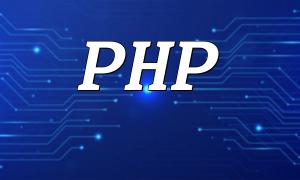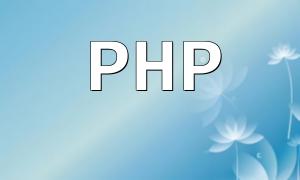PHP algorithm libraries offer many conveniences, especially when processing complex data and executing algorithms, significantly boosting development efficiency. However, relying on these libraries can introduce some common issues. Understanding and avoiding these pitfalls can improve both code quality and application stability and performance. This article covers common issues developers face when using PHP algorithm libraries, along with strategies for addressing them.
Many PHP developers, especially beginners, may become overly dependent on pre-built functions in algorithm libraries, believing that simply calling these functions can easily solve the problem without understanding the underlying algorithms.
This approach often leads developers to overlook the underlying logic of the algorithms. In cases where specific requirements arise, developers may struggle to adjust or optimize the algorithm. Prolonged dependence on library functions may also result in a lack of understanding of data structures and algorithm complexities.
Developers should study the basic principles of algorithms and data structures before using library functions. Understanding how an algorithm works, its use cases, and performance bottlenecks can help you make more informed decisions about which algorithms to use and avoid relying solely on function calls.
PHP algorithm libraries contain various algorithms, each suited for different scenarios. If developers do not choose the right algorithm for their needs, it can lead to performance issues, particularly when dealing with large data sets or high concurrency.
For example, when handling large datasets, choosing an algorithm with a higher time complexity could cause significant performance degradation. The performance differences between various algorithms can be quite large, and making the wrong choice can lead to noticeable bottlenecks.
When selecting an algorithm, developers should carefully analyze the input data's size, characteristics, and application context. For common operations like sorting and searching, developers should test the performance of different algorithms in advance and select the one that best suits the specific needs of the project.
Many PHP algorithm library functions may have different requirements for parameters and return value handling. Developers who do not carefully read the documentation can easily make mistakes in how they pass parameters or handle return values.
For instance, some algorithm functions may require parameters to be passed by reference and modify them during execution. If a developer mistakenly passes a value-type parameter, this can result in data loss or incorrect results.
Before using algorithm library functions, developers should carefully read the documentation to understand the types of parameters required and how the return values are handled. To minimize errors, unit testing should be used to ensure the correctness of the functions in different situations.
Many developers overlook error handling when using third-party algorithm libraries, assuming that a successful function call means the problem is solved. However, proper error handling is crucial for ensuring the robustness of the program.
Without error handling, the program may crash or enter an unexpected state when an exception occurs, especially when the data input is not well-formed or the data volume is large.
Developers must implement error handling when using algorithm libraries. Using try-catch blocks to capture and handle exceptions ensures that the program can gracefully handle errors rather than crashing unexpectedly.
While PHP algorithm libraries provide powerful functionality, developers should be cautious to avoid common pitfalls. By carefully selecting algorithms, optimizing parameter passing, handling errors appropriately, and understanding the logic behind algorithms, developers can enhance the stability and performance of their programs. By following these practices, developers not only improve their development efficiency but also create high-quality code.









